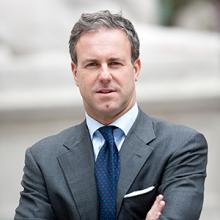Family Office: The purpose/cost equation

The operational structure of a family office, its asset base, who it is intended to serve, and with what investments and services, are all key drivers of costs. For first generation family offices, the client base is relatively small and considerations over the extent of service are based largely on personal preference.
Linda Mack, president, Mack International, comments: “The starting point for building or evolving a family office is to look at who is defined as a client, who is the office intended to serve, the scope of service, and what to insource or outsource?”
She says that these questions around purpose are the big issues that will have the most impact on cost, especially once wealth is transitioned to future generations who are more numerous and may have different wants and needs. Investment strategies will also impact costs as an outsourced portfolio invested in equity and bonds will have different costs to a portfolio running an in-house private equity team (see CampdenFO issue 21).
“As the family determines its succession and evolution plan, the office also evolves to meet the needs of a new family structure,” she says.
Indeed the impact of today's decisions, once the family office is two generations out, are often overlooked. Providing a full service, including concierge, might look like a great idea when a family office is first generation, but becomes less appealing once there are more clients to serve and the cost becomes potentially overwhelming.
“What is the cost of providing the basics and how will that change once the number of clients increases? What is the cost of providing a full service to many people versus fewer people? Without doubt it is easier to provide a full family office to fewer family members,” says Mack.
Alexandra Altinger, chief executive of Sandaire Investment Office, comments: “Some families' specific situation can mean their affairs are costlier to manage and this can depend upon a wide variety of factors. For instance, in an increasingly globalised world where wealthy families may live in multiple jurisdictions and children are often educated abroad then the situation of the family as a whole needs to be deconstructed. Individual advice around investments, accounting, and structuring needs to be available. This is especially the case, as wealth passes down to the next generation and fragmentation occurs.”
The full scope of what is required for an investment function, for example, can be wholly or partially outsourced, or not at all, and this comes back to the individual family office and the way it feels about control, customisation, and coordination.
Mack says that even if the argument for outsourcing from a cost point of view is overwhelming, if the family feels more strongly about control and privacy then the function will ultimately be retained in-house, in line with that family's philosophy.
The technology can automate many parts of the investment process, says Mack, but that what cannot be outsourced or automated is the human interaction. This is where the expense is incurred and where the family office needs to have a strong philosophical conversation about what its purpose and scope is and who its clients are.






